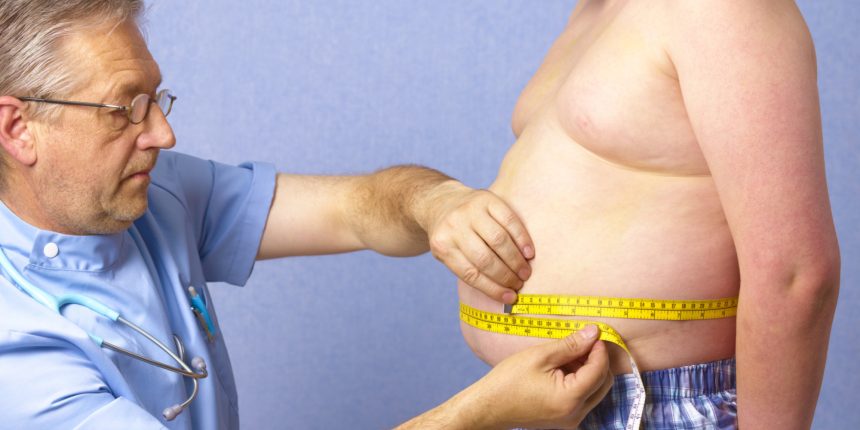More than half the world’s population will be overweight or obese by 2035 – wiping trillions of pounds off the potential value of the global economy, a report warns.
The figure is forecast to soar from 2.6billion people (38 per cent) in 2020 to 4billion (51 per cent) in the next 12 years without action to tackle the crisis.
Obesity alone is anticipated to rise from 14 per cent to 24 per cent over this period, according to new analysis by the World Obesity Federation.
It means 2billion adults and children – one in four – will be blighted by the disease, raising their risk of cancer, heart disease and type 2 diabetes.
The report blames Covid lockdowns for fuelling weight gain, as the curbs restricted movement outside the home and encouraged couch potato lifestyles and snacking.

TRENDING
The consequences may proof ‘hard to reverse’, the report adds.
Surging obesity rates are expected to be steepest among kids, growing from 10 per cent to 20 per cent of boys and from 8 per cent to 18 per cent of girls.
The economic impact of overweight and obesity is expected to more than double from £1.64trillion in 2020 to £3.35trillion in 2035.
This includes the healthcare costs of treating obesity and its consequences and the impact of high BMI on economic productivity, including sick leave, reduced productivity while at work, and early retirement or death.
The economic impact is estimated to reduce global output by 2.9 per cent a year by 2035.
By comparison, Covid-19 caused the world economy to shrink by 3 per cent during 2020, the pandemic’s worst year.
The report, named the World Obesity Atlas, says: ‘The period from 2020 to 2022 was marked by extensive restrictions or ‘lockdowns’ in many countries that appear to have increased risk of weight gain by curtailing movements outside the home, exacerbating dietary and sedentary behaviours linked to weight gain, and significantly reducing access to care.
‘In addition, many national surveys and measurement programmes which monitor weight and weight gain were halted.
‘A rise in obesity prevalence, which appears to have occurred especially among children, may prove hard to reverse, and suggests that a side-effect of managing the COVID-19 pandemic is a worsening of the obesity epidemic.’
In the UK, the proportion of adults that are obese is expected to increase by an average of 2.4 per cent a year between 2020 and 2035, to 46 per cent.
Rates in children are forecast to grow by 2.8 per cent per year over this period, to more than 20 per cent.
The UK will have the 17th highest rates of overweight and obesity among men and the 46th highest among women, when ranked with 161 countries.
Meanwhile, the US is forecasted to rank second among men and 29th for women.
Overweight and obesity is likely to add £27.2billion to the cost of healthcare in the UK in 2035 and cost the wider economy £77billion, 2.4 per cent of GDP.
A spokeswoman for the UK’s Obesity Health Alliance said: ‘These figures are all the more shocking because successive UK governments have had many opportunities to turn the tide on obesity but have failed to grasp them.
Our country is flooded with cheap, unhealthy, heavily processed food and billions is spent on marketing; this needs to change.
‘This government can, and must, make it easier, cheaper and more appealing to buy healthier food and drinks, and to help people reach a healthy weight, especially children, without delay.’










